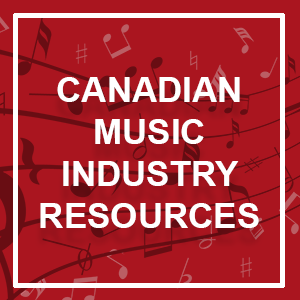The Online News Act, Bill C-18, was barely a few hours old when Meta announced it will soon start blocking Canadians from accessing and sharing news on Facebook, Instagram and all of its platforms.
The act is meant to change the way journalism in Canada is funded by requiring tech giants like Meta and Google to bargain with Canadian media businesses for using news content on their platforms. The Parliamentary Budget Office has estimated news organizations could share a total compensation of $329 million annually.
But Meta explained its decision to block news by saying journalism content contributes a pittance to the company’s annual earnings — and so it would be easier to pull news altogether than comply with the legislation.
The Online News act was modelled on Australia’s News Media Bargaining Code (NMBC), legislation that was the first to compel Meta and Google to pay for third-party news content on their sites. Since the NMBC was passed in 2021, other countries, including the United Kingdom, the United States, South Africa and Brazil, have considered imposing similar laws.
But it looks as though Canada will be the first to succeed in implementing legislation that Ottawa says will “improve” on the Australian code.
Meta’s predictable response
For Australians watching the legislation proceed through the Canadian Parliament, Meta’s actions seem to signal a case of history repeating.
Meta acted in much the same way while the NMBC was being debated, blocking Australians from accessing or posting news content. The ban included links to both Australian and international news publications — and even charities, emergency services and Australian government Facebook pages, such as the Bureau of Meteorology.
The move was a highly public attempt to force changes to the Australian legislation to avoid being “designated” in the legislation, which would name the platforms forced to negotiate with news organizations under the code.
The stunt was largely successful — the government made the concessions and effectively watered down the law.
The Australian media industry is now feeling the effects of that decision.
The Australian NMBC one year on
Late last year, the Australian Federal Treasury completed the first review of the NMBC and positioned the legislation as a success. In a lot of ways, it was. There were 34 deals made amounting to more than AU$200 million across the media sector, which represents about 61 per cent of the market being covered by at least one deal.
There was, however, a significant difference between Google and Meta when it came to the deals made. Meta only made deals with 13 media organizations, whereas Google secured about 23 deals.
I was part of an Australian research team that wanted to understand how Google and Meta were able to have such different responses to the code. We examined policy documents and interviewed news media executives about their experience of negotiating with the platforms.
What we found wasn’t all good news for journalism.
Lack of transparency under the NMBC
Some of the news executives of smaller organizations said lack of transparency around the funding led to an unintended shift. The market imbalance between media organizations and platforms was now felt much more among the media organizations themselves.
Commercial confidence provisions in the legislation means news organizations and platforms are not required to report how much money they received, how they invested the money they received or whether that investment aligned with the NMBC’s policy aim of supporting public interest journalism.
Most interviewees who secured larger deals did not want to see transparency about the amounts of money secured because they considered that information commercially sensitive.
But lack of transparency around the type and amount of funding effectively meant smaller, independent organizations competing for market share in a highly concentrated Australian media ecosystem were losing talent and investment. They were going to the larger media groups that were likely to have been given more funding under the code.
Misha Ketchell, editor of The Conversation Australia, said more transparency might have improved the “information asymmetry” between larger corporations and smaller independent organizations.
“We had no idea, and we struck a deal for a very modest amount of money,” Ketchell said. “We were really at a huge disadvantage.”
Ketchell told us his organization only got enough money to hire one new journalist, and that another newsroom poached one of their key staff because the other company used the funding it secured under the NMBC to offer a salary above the usual market rate.
Platforms opting out of NMBC negotiation
This impact was compounded by a second issue — the removal of “designation” in the code. That meant that regardless of whether a news organization was eligible under the code, there was no requirement that a platform negotiate with the organization.
As Nick Shelton, publisher of lifestyle-focused Broadsheet Media, argued:
“The platforms are the ones who are in a position to determine who they deal with … . So all of a sudden you have Google and Meta, huge multinational businesses, deciding the winners and losers of the Australian media industry.”
Platforms could refuse to negotiate with organizations they deemed ineligible as public-interest journalism or alternatively, to remunerate organizations they had a business interest in supporting. Our interview participants suggested both scenarios had occurred.
Lastly, our interviews also showed that platforms were also able to push for individual deals that aligned with their own business priorities for news on the platform. This impacted the kinds of journalism being invested in, and reliance on particular forms of funding to pay for it.
Some interviewees claimed the platforms were pushing media organizations toward more grant-based funding and other specific programs offered by the tech companies — such as Google News Showcase — to avoid negotiating individual deals under the code.
Others interviewed indicated that deals were framed around investment in particular types of content according to needs of the platform, such as the Google News Initiative, rather than being paid for news content published on the platforms.
What does this mean for Canadians?
There are valuable lessons to be learned from the framing of the Australian code.
Lack of transparency and designation means the tech platforms have been able to act in the best interests of their own business priorities, rather than in the interest of the code’s stated aim of supporting public-interest journalism.
Canadians should consider how much influence platforms already have and how much they might seek to gain once the Online News Act comes into effect.
Written by Diana Bossio, Associate Professor, Media and Communications, Swinburne University of Technology
This article is republished from The Conversation under a Creative Commons license. Read the original article.
![]()
5 Ways to Support HipHopCanada:
- Submit Your Music
- Follow Canadian Fresh (HipHopCanada’s Spotify Playlist)
- Follow us on Instagram
- Follow us on X (Twitter)
- Like us on Facebook



















































